5 Best Wedding Videography Cameras [2024]
by Ryan Hart | Updated on March 2, 2024 | Post may contain affiliate links. As an Amazon Associate we earn from qualifying purchases.
When capturing a couple’s big day, the last thing that you want is to end up with poor video quality.
They’re paying you to create a memory that will last a lifetime. Choosing the best wedding videography camera is essential.
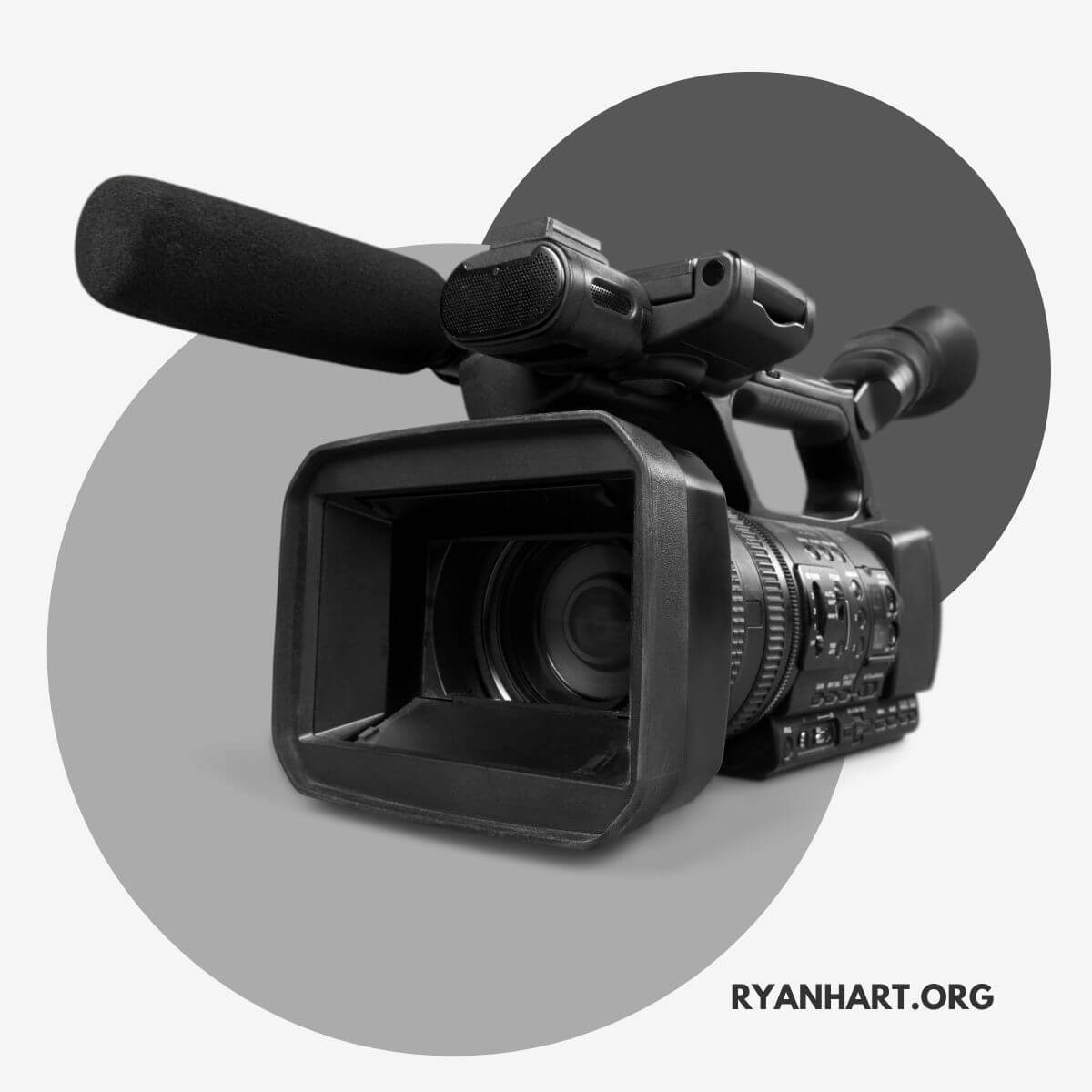
What is the Best Video Camera for Weddings?
With so many cameras out there, it can be challenging to know what kind is best for your wedding video needs. We’ve taken some time researching the best cameras for wedding videography so that no matter what budget you’re working with, we can help!
Keep reading to find our top picks for wedding videography cameras.
1. Sony Alpha 7S III
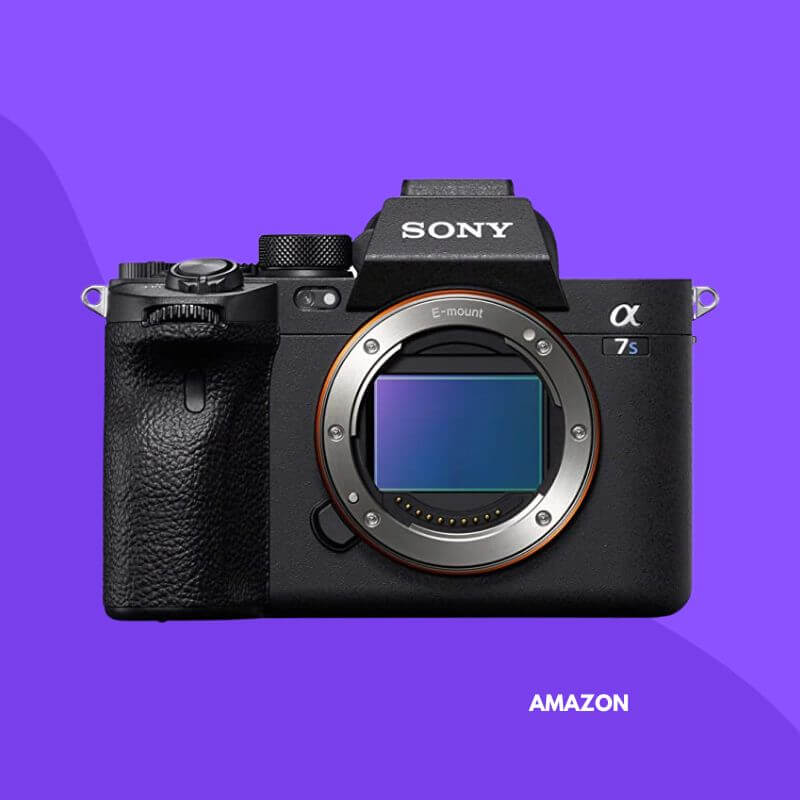
The Sony Alpha 7S III camera is designed for high performance and capability for taking photos and recording video in 4k resolution.
Advanced focusing features allow photographers to keep the camera focused on the most important subjects. Silent shooting will enable photographers to capture the wedding discreetly without disrupting the ceremony.
Highlights:
- Maximum ISO of 409,600 provides ease for capturing low-light scenes
- Fast autofocusing for accuracy
- Silent shutter
- Easy to navigate touchscreen
- WiFi connectivity for easy sharing
- Lightweight
- Eye Autofocus and face recognition while recording
Best Suited for:
A versatile camera, the Sony Alpha 7S III is great for photographers looking for a lightweight camera capable of easily capturing beautiful images.
2. Canon EOS R5
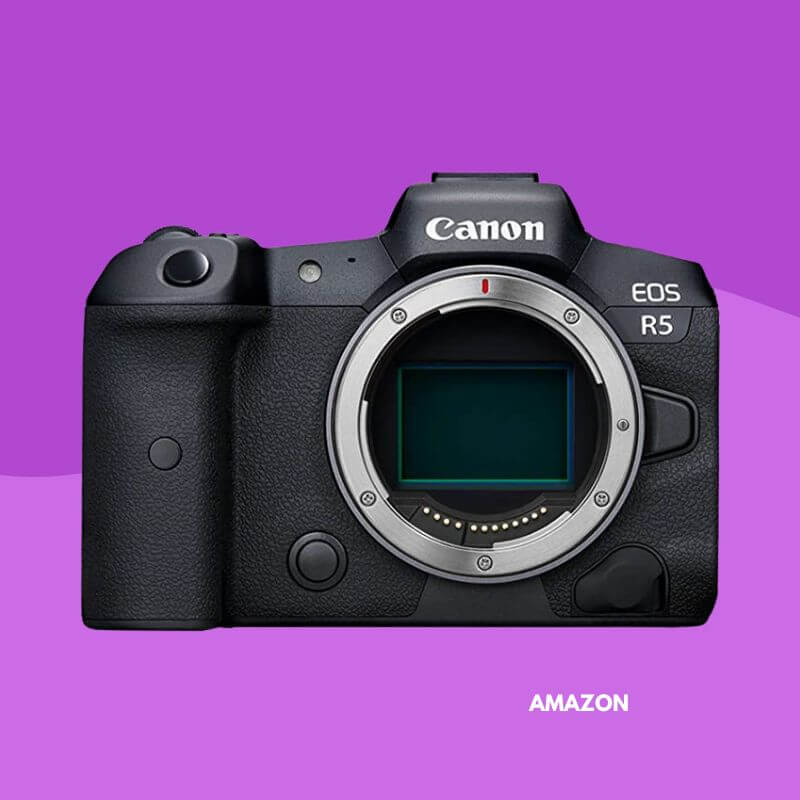
For wedding videography, the Canon EOS R5 is a great option. It offers 4K video recording and an ISO range of 100 to 102,400 that allows you to shoot in a wide variety of lighting conditions.
The 9 fps continuous shooting and 6.5 stops of dynamic range make capturing the best moments at any wedding day easy without missing anything important.
Highlights:
- WiFi, Bluetooth, and FTP connectivity
- 45MP sensor with fast readout speed
- Dynamic range
- 100% autofocus coverage
- Built-in image stabilizer
- Quick burst shooting rate up to 12fps
Best Suited for:
The Canon EOS R5 is ideal for amateurs and professionals who want to take their filming skills up a notch with this versatile camera that will last them through many more years of filming weddings!
3. NIKON D810
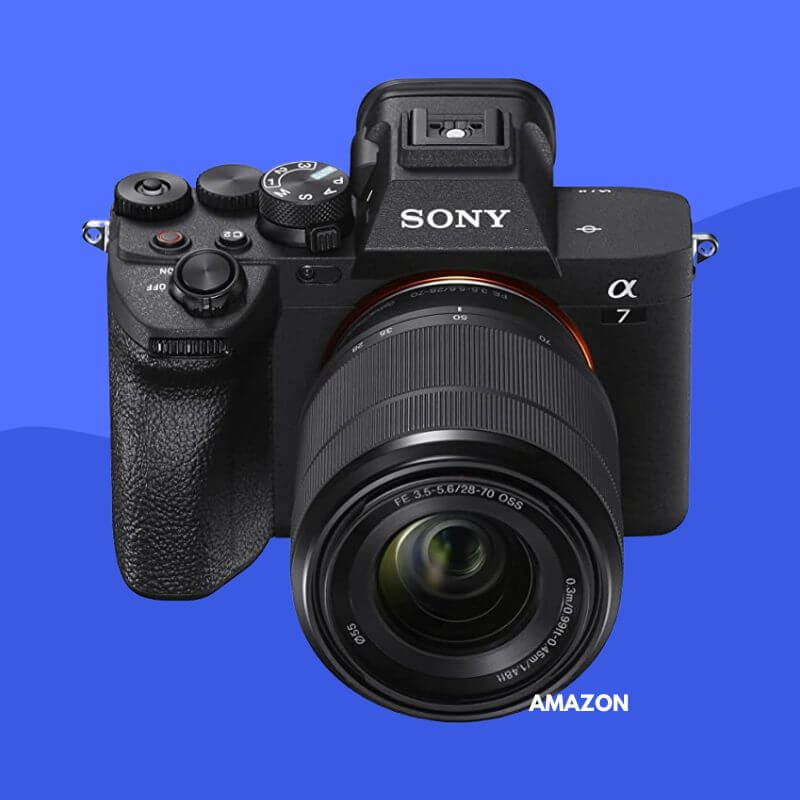
The NIKON D810 features a full frame DSLR with an APS-C CMOS sensor and an ISO range of 100 to 25600, which makes it suitable for any lighting situation. The 6.5fps continuous shooting speed allows you to capture fast action shots, and its 1080p video at 60/50/30/25/24p gives you excellent quality video footage and stills.
Highlights:
- EXPEED 4 image processing for high-detail
- Wide dynamic range
- Unlimited continuous shooting
- Fast image processing
Best Suited for:
The NIKON D810 is ideal for anyone who wants a versatile DSLR camera with many features. The tiltable LCD touchscreen display (which makes taking selfies easier!) and dual SD card slots allowing photos & videos to be stored on one card are just a couple examples of this well-designed wedding videography camera.
4. Canon EOS R6
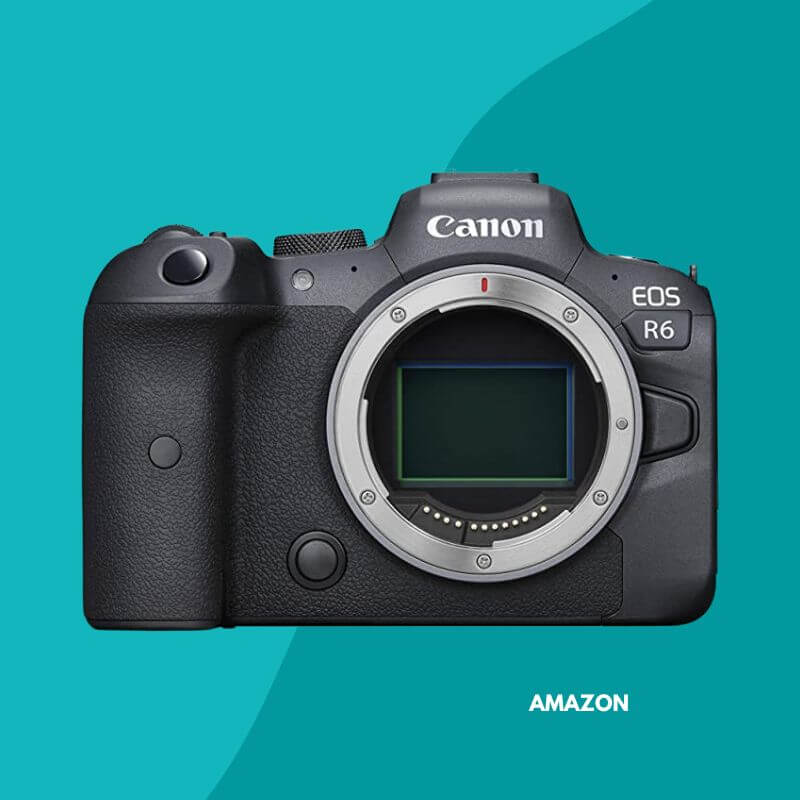
The Canon EOS R6 has a full-frame CMOS sensor and image stabilizer allow videographers to capture the action with amazing image quality.
Highlights:
- Excellent at handling low-light shooting
- Shoots up to 11 fps to capture fast action on the dance floor
- Intuitive tracking captures eye, face, and head movement with precise autofocus
- Animal detection autofocusing
Best Suited for:
The weatherproofing means that it’s perfect for outdoor weddings and other locations where there may be inclement weather; it will keep working in rainstorms while continuing to shoot crisp images that look great onscreen and in print!
5. Panasonic LUMIX GH5
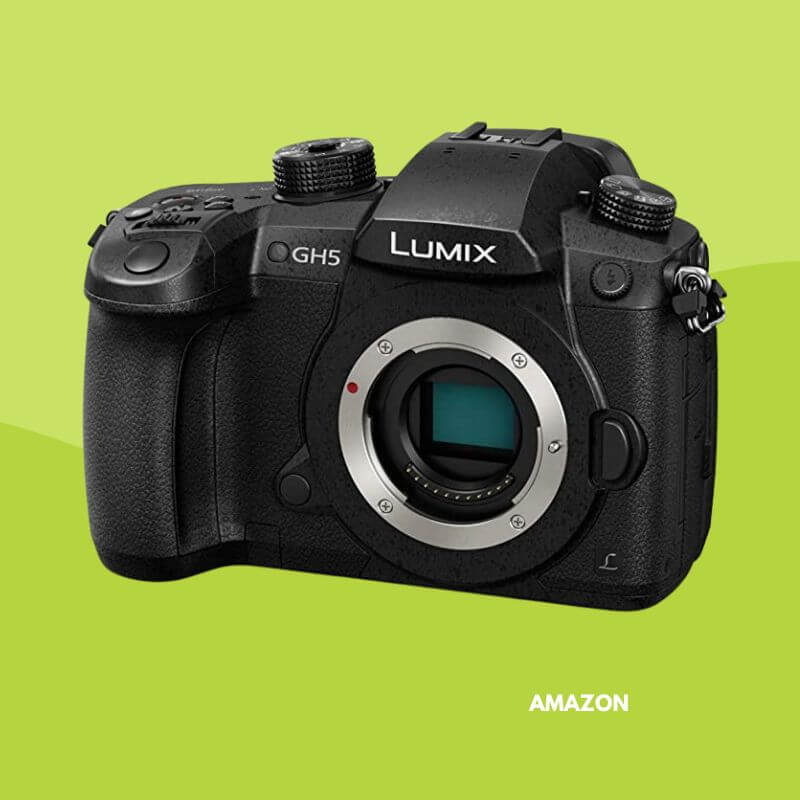
The Panasonic Lumix GH5 is an excellent camera for wedding videography. This model shoots 4K video at up to 60 fps and 6K photo mode, which means you can capture beautiful footage of your subject in full detail.
It also features a 5-axis in-body stabilization system that helps reduce vibrations when shooting handheld footage or taking photos with long shutter speeds.
Highlights:
- Shoots 4K videos at up to 60 fps and 6K photo mode
- 5-axis in-body stabilization system reduces vibrations
- 3" 1,040k-dot OLED monitor for quick viewing on the go
Best Suited for:
The Panasonic LUMIX GH5 is ideal for photographers who want to step up their game but don’t want to spend too much money doing so. Its versatile design allows photographers to use interchangeable lenses and experiment without investing in new equipment.
Frequently Asked Questions
How many cameras do you need to film a wedding?
Most professional videographers agree that two cameras are ideal for filming a wedding. This allows them to capture important moments from different angles, creating an amazing finished product that the couple can treasure for life!
While some more skilled videographers might use three or more cameras, they would generally do this only when they have plenty of time and personnel at the event.
Should I use a DSLR, mirrorless, or camcorder for wedding videography?
When deciding whether to use a DSLR, mirrorless camera, or camcorder for wedding videography, it’s important to consider factors like image quality, low light performance, and battery life to determine which option is the best camera for capturing a wedding.
DSLR Cameras: DSLRs are a popular choice for wedding videography due to their high image quality and versatility. They offer excellent low light performance, which is crucial for capturing indoor ceremonies and receptions where lighting conditions can vary. DSLRs also come with a wide range of lens options, allowing videographers to achieve different looks and effects. However, DSLRs can be bulky and their battery life, while generally good, may not be as impressive as that of camcorders.
Mirrorless Cameras: Mirrorless cameras have become increasingly popular in recent years, offering many of the same advantages as DSLRs, including high image quality and excellent low light performance. They are typically lighter and more compact, making them easier to handle during long shoots. Mirrorless cameras also tend to have faster autofocus systems, which can be beneficial for capturing fast-moving moments during a wedding. Additionally, many mirrorless cameras offer impressive battery life, though it’s always a good idea to have spare batteries on hand.
Camcorders: Traditional camcorders are designed specifically for video recording and can be a great option for wedding videography. They often have features tailored for video, such as built-in stabilization, extended recording times, and professional audio inputs. Camcorders generally provide impressive battery life, making them reliable for long events. However, the image quality of camcorders may not always match that of high-end DSLRs or mirrorless cameras, particularly in low light situations.
In summary, each type of camera has its strengths and choosing the best camera for wedding videography depends on your specific needs and preferences. If you prioritize image quality and versatility, a DSLR or mirrorless camera would be ideal. If you value ease of use, long recording times, and impressive battery life, a camcorder might be the better option. Consider the specific demands of the wedding you are filming and your personal shooting style to make the best choice.Should I use a DSLR, mirrorless, or camcorder for wedding videography?
What features should I look for in a wedding videography camera?
When selecting a camera for wedding videography, it’s essential to focus on features that ensure high-quality footage and meet the unique demands of capturing a wedding. First and foremost, image quality is paramount; look for cameras with high-resolution sensors (at least 4K) to deliver sharp, detailed footage. Excellent low light performance is crucial as well, given that weddings often occur in dimly lit venues like churches and reception halls. Cameras with larger sensors, such as full-frame or APS-C, can gather more light, producing clearer images in low light conditions. Additionally, high ISO capabilities and effective noise reduction are important to maintain image clarity in darker settings.
Interchangeable lenses provide significant versatility for capturing different types of shots, from wide-angle group photos to close-up portraits. A robust autofocus system with features like face and eye detection ensures that moving subjects stay in focus, which is essential for dynamic wedding environments. Built-in image stabilization is another critical feature, helping to reduce camera shake and produce smooth footage, especially during handheld shooting. Long battery life is vital for wedding videographers, as you often need to film for extended periods without frequent battery changes. Cameras known for impressive battery performance will help ensure you don’t miss any key moments.
Audio quality is equally important; look for cameras with professional audio inputs to connect external microphones, as built-in microphones typically don’t capture clear audio in varied wedding settings. Durability and weather sealing are also beneficial, allowing the camera to withstand different environmental conditions without compromising performance. Finally, for those new to videography or filming their first wedding, user-friendly features such as intuitive controls, customizable settings, and on-screen guides can greatly enhance the shooting experience. By focusing on these features, you can choose a camera that will help you capture beautiful, memorable footage for your clients.
Is 4K resolution necessary for wedding videography?
One of the main benefits of shooting in 4K is the flexibility it provides in post-production. Higher resolution footage allows for cropping and zooming without losing significant image quality, which can be useful for reframing shots or creating multiple angles from a single camera setup. This is especially valuable when working with a limited number of camera bodies or when you need to enhance specific moments within the footage. Additionally, shooting in 4K enables better stabilization and noise reduction during editing, contributing to a smoother and more professional-looking final video.
Another advantage of 4K resolution is that it future-proofs your work. As more consumers and devices support 4K playback, delivering a wedding video in this format ensures it will remain relevant and of high quality for years to come. Moreover, using a camera with features like focus peaking helps maintain sharp focus, which is crucial when dealing with the high level of detail captured in 4K. Paired with a suitable frame rate, such as 24fps for a cinematic look or 60fps for smooth motion, 4K footage can significantly enhance the viewing experience.
While 4K cameras can be more expensive and require more storage and processing power, the benefits often outweigh these challenges. Using a 4K main camera in conjunction with other cameras can provide a high-quality, versatile foundation for your wedding videography. Therefore, while not absolutely necessary, 4K resolution is highly recommended for wedding videography to achieve the best possible final image quality and to offer greater flexibility and future-proofing for your work.
Bottom Line
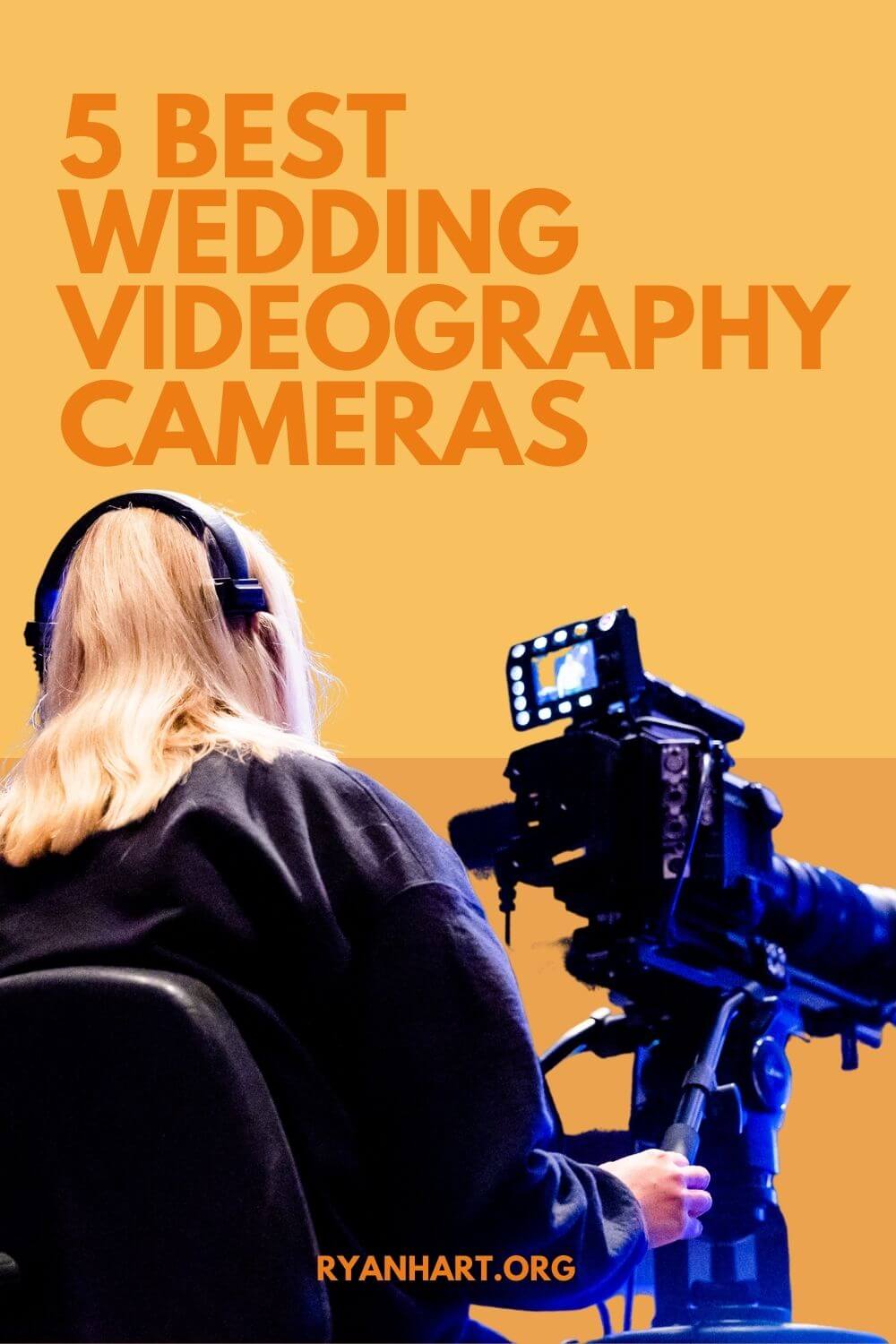
Wedding videographers have a huge responsibility when finding the perfect camera for their next big gig. That’s why it’s important to shop around for a camera that meets all of your creative and technical needs.
Plus, you want something with a bit of pizzazz so you can capture all the intimate moments from the ceremony in style!
Look for top-notch resolution, great battery life to avoid any unexpected power outages, and an easy way to backup data.
Long story short, wedding videographers should research high quality cameras that come packed with cool features so they can rock each shot like a boss!